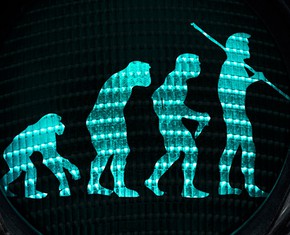The views expressed in our content reflect individual perspectives and do not represent the authoritative views of the Baha'i Faith.
Between 1904 and 1906, Abdu’l-Baha, the son of Baha’u’llah, the Founder and Prophet of the Baha’i Faith, and the head of the Faith after Baha’u’llah’s passing, sat down with a young American woman to answer her questions about the Baha’i teachings. This remarkable woman, Laura Clifford Barney (later Laura Dreyfus-Barney) queried Abdu’l-Baha about a wide-ranging litany of questions on philosophical, theological and social subjects, and, with the help of various translators, recorded his answers. Her probing, intelligent two-year-long interview, originally known as Table Talks, later became the well-known Baha’i book Some Answered Questions — a volume of questions from a believer and direct, powerful answers from the head of the Faith that is unique in religious history.
Some Answered Questions catalogues and categorizes Abdu’l-Baha’s commentary on a wide variety of fascinating subjects. Edited with the help of her husband-to-be Hippolyte Dreyfus and first published in 1908 in London, the book records what has now become known as Baha’i scripture – because each page was personally reviewed and verified by Abdu’l-Baha. Now translated into multiple languages and in print for more than a hundred years, the book has had a tremendous impact on millions – and on Laura herself. After hearing Abdu’l-Baha’s advice to serve others and dedicate herself to the oneness of humanity and world peace, Laura devoted the rest of her life to her Baha’i activities and many social causes including world peace, women’s rights and education. Wikipedia says:
She was a member of different committees with the League of Nations and latter UNESCO. During World War I, Laura Dreyfus-Barney served in the American Ambulance Corps (1914-15), and the American Red Cross (1916-18) in France, and helped to establish the first children’s hospital in Avignon (1918). The remainder of her life was devoted to international humanitarian and philanthropic activities, most connected with the League of Nations and the United Nations. For her services she was named chevalier (1925) and officer (1937) of the French Légion d’Honneur.
The editors at BahaiTeachings.org thought you might enjoy Abdu’l-Baha’s responses to Laura’s Some Answered Questions, so we plan to serialize this remarkable book over the next few months.
Nature is Governed by One Universal Law
Nature is that condition, that reality, which in appearance consists in life and death, or, in other words, in the composition and decomposition of all things.
This Nature is subjected to an absolute organization, to determined laws, to a complete order and a finished design, from which it will never depart—to such a degree, indeed, that if you look carefully and with keen sight, from the smallest invisible atom up to such large bodies of the world of existence as the globe of the sun or the other great stars and luminous spheres, whether you regard their arrangement, their composition, their form or their movement, you will find that all are in the highest degree of organization and are under one law from which they will never depart.
But when you look at Nature itself, you see that it has no intelligence, no will. For instance, the nature of fire is to burn; it burns without will or intelligence. The nature of water is fluidity; it flows without will or intelligence. The nature of the sun is radiance; it shines without will or intelligence. The nature of vapor is to ascend; it ascends without will or intelligence. Thus it is clear that the natural movements of all things are compelled; there are no voluntary movements except those of animals and, above all, those of man. Man is able to resist and to oppose Nature because he discovers the constitution of things, and through this he commands the forces of Nature; all the inventions he has made are due to his discovery of the constitution of things. For example, he invented the telegraph, which is the means of communication between the East and the West. It is evident, then, that man rules over Nature.
Now, when you behold in existence such organizations, arrangements and laws, can you say that all these are the effect of Nature, though Nature has neither intelligence nor perception? If not, it becomes evident that this Nature, which has neither perception nor intelligence, is in the grasp of Almighty God, Who is the Ruler of the world of Nature; whatever He wishes, He causes Nature to manifest.
One of the things which has appeared in the world of existence, and which is one of the requirements of Nature, is human life. Considered from this point of view man is the branch; nature is the root. Then can the will and the intelligence, and the perfections which exist in the branch, be absent in the root?
It is said that Nature in its own essence is in the grasp of the power of God, Who is the Eternal Almighty One: He holds Nature within accurate regulations and laws, and rules over it.
The reader will there see that the Baha’i Faith has not an anthropomorphic conception of God, and that if it employs a customary terminology, it is careful to explain its symbolic meaning.
Abdu’l-Baha (Some Answered Questions, pp 3-4)
















Comments
Sign in or create an account
Continue with Googleor